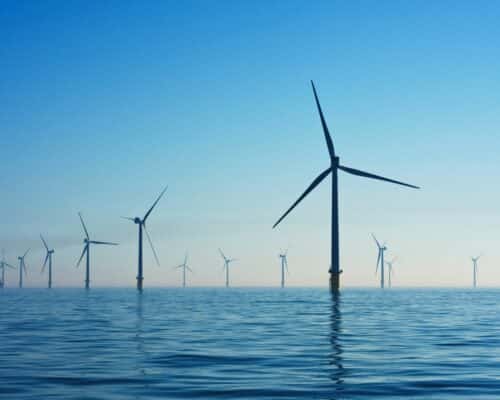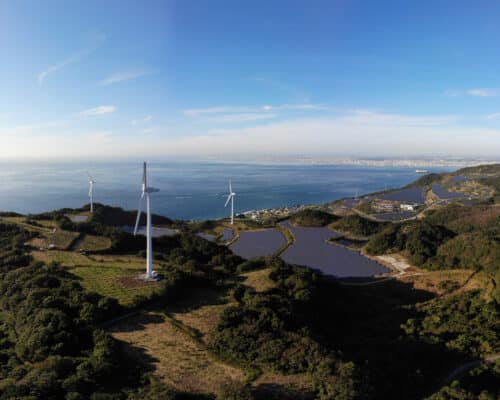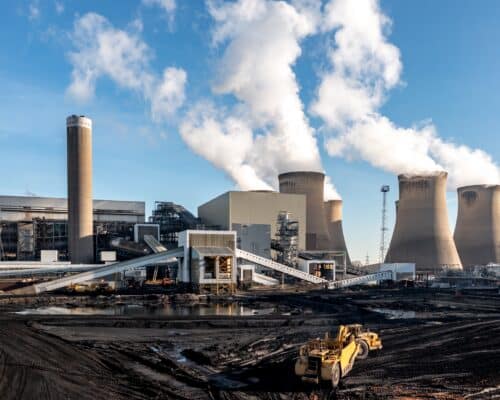Japan

Japan Puts the G7 Climate Leadership at Risk
The fight against climate change started in Kyoto in 1997, with Japan at the helm. 25 years later, instead of leading it, Japan is stalling, and time is slipping away. This is having consequences for the world and the rest of the G7.

Wind Energy in Japan: Prospects, Benefits and Future
While Japan’s government increasingly considers wind energy a viable option, the progress is still sluggish. Accelerating it requires addressing various administrative burdens and introducing more ambitious policies.

Taxation in Japan Jeopardises its Solar Sector
Japan has been grappling with how to decrease its disproportionate carbon emissions relative to its population of only 123 million people. Part of that solution includes developing solar power. However, there's a growing movement in more than 200 Japanese municipalities to levy prohibitive taxes on new solar power projects.

ASEAN Countries Need to Prioritise Renewable Energy Not Ammonia, Hydrogen and CCS
While Japan argues that its GX strategy can help countries accelerate their energy transition and ensure a reliable power supply, experts accuse the government of trying to export its fossil fuel lobby's interests. Southeast Asian countries shouldn’t be the ones paying the price.
Japan’s Energy Policy Is Turning It Into the World’s Climate Villain
Japan is quickly becoming the odd one at the table of the G7 regarding climate policies. Scientists, analysts and environmental and societal groups see it as the culprit of climate change inaction. It is time for Japanese governmental and corporate leadership to change that perception.

Japan’s G7 Fossil Fuel Push – Podcast
Susanne Wong, at Oil Change International, speaks about Japan and the fossil fuel push at the G7.
Japan’s Priorities as G7 President
Japan's priorities as G7 president appear to centre around trade, energy security and digitalisation. While not surprising, there are still questions as to how Japan will align these issues with existing G7 initiatives.
Japan’s Ammonia Plans Threaten the Carbon Emissions Reduction of Southeast Asia
Aside from a few positive outcomes, the G7 ministerial meeting ended disappointingly due to a final communique with vague wording and weak commitments. This sets the stage for Japan to continue doing business as usual.
G7 Summit 2023: What to Expect
Japan is hosting the G7 summit for 2023 in Hiroshima. It will be a pivotal meeting for climate action as Japan continues to fall out of step with fellow G7 nations. Will Japan use its presidency to continue this trend or make changes?
Current State And Future Of Japan’s Carbon Emissions
Japan produces the fifth-most carbon dioxide emissions annually, and in the G7, it only falls below the United States. While the country does have a net-zero goal for 2050 and an interim goal for 2030, its current decarbonisation strategy may not be feasible. It relies on decarbonising the fossil fuel industry, a strategy climate experts warn against.
Japan’s Natural Gas Dependence: A Liability For the G7
Japan imports over 90% of its natural gas. As a result, it is reliant on the global LNG market and current events to dictate supply and energy costs. This is a liability that was highlighted in 2022 due to the country's dependence on Russian natural gas. Developing a robust renewable energy grid is the only viable long-term solution.
Japan’s ‘Green Transformation’ (GX) Is Stacked With Fossil Fuel-based Technology
Japan is promoting its green energy transformation, but it's a false narrative since it still includes liquefied natural gas (LNG), coal and fossil fuel-based technology. Japan must also quickly set forth a formal coal reduction and elimination plan before it hosts the next G7 meeting in May.
Fossil Fuel Imports Risk Japan’s Energy Security
Japan has low domestic fossil fuel production yet relies on fossil fuels for most of its energy. High dependence on foreign imports is creating energy security concerns. However, Japan remains seemingly uncommitted to completely phasing out fossil fuels, lagging behind other G7 nations.

G7 Ministers’ Meeting 2023: What Is the Desired Outcome?
The G7 Climate and Energy Ministerial Meeting is shaping up to be a roadshow for Japan's questionable technologies. If the world is to stand a chance in limiting climate change to 1.5°C, the G7 reject the proposals, speed up coal phase-out and limit gas investments.
Most Popular
Categories
-
9
-
31
-
127
-
4
-
17
-
39
-
51
-
14
-
15
-
10
-
23
-
6
-
155
-
162
-
23
-
1
-
22
-
30
-
36
-
66
-
14
-
74
-
40
-
17
-
6
-
28
-
21
-
85
-
245
-
20
-
35
-
31
-
9
-
41
-
35

